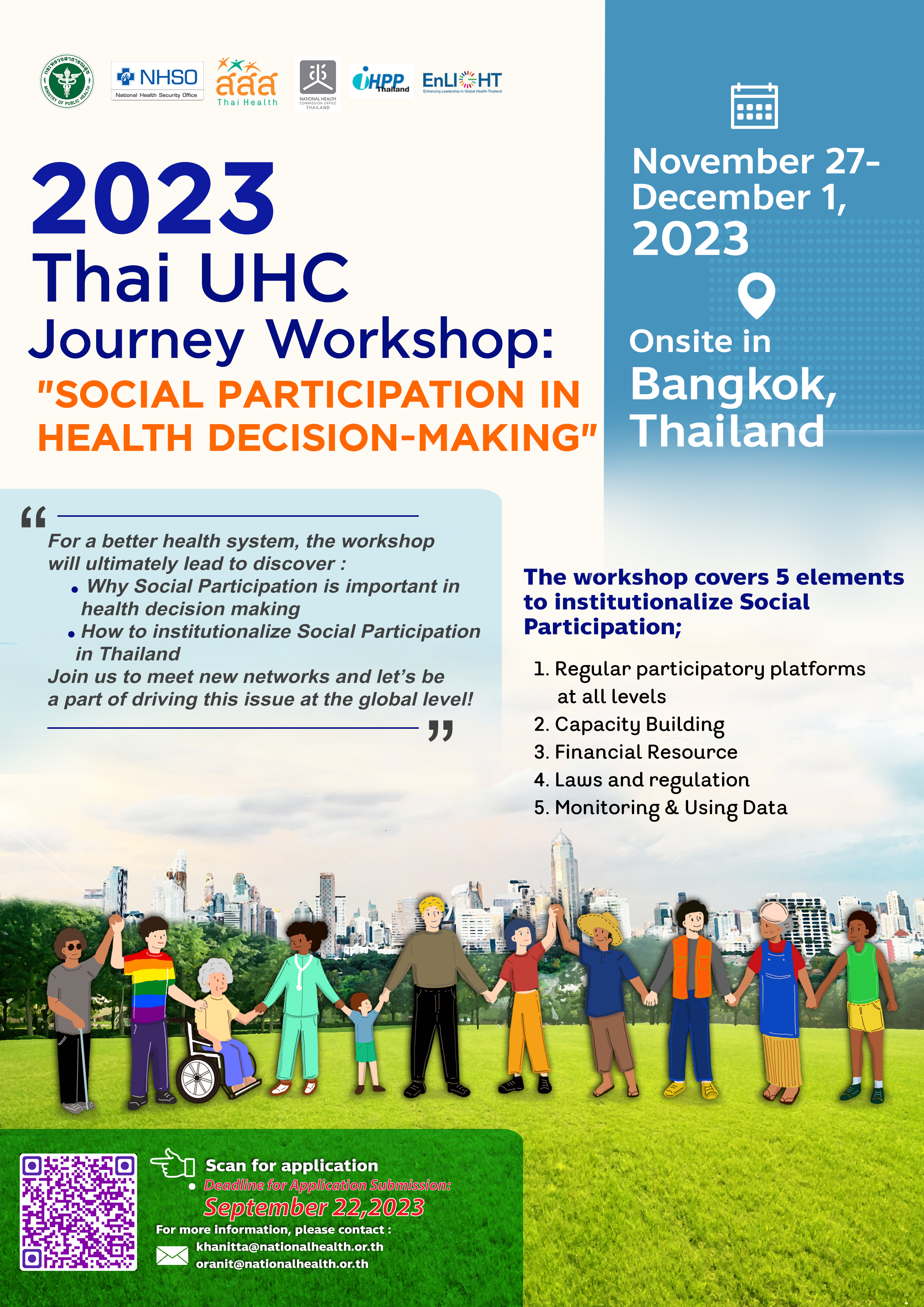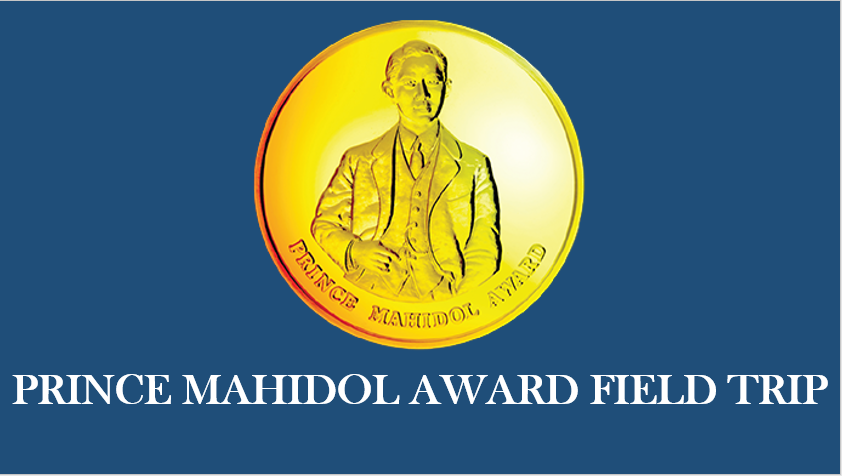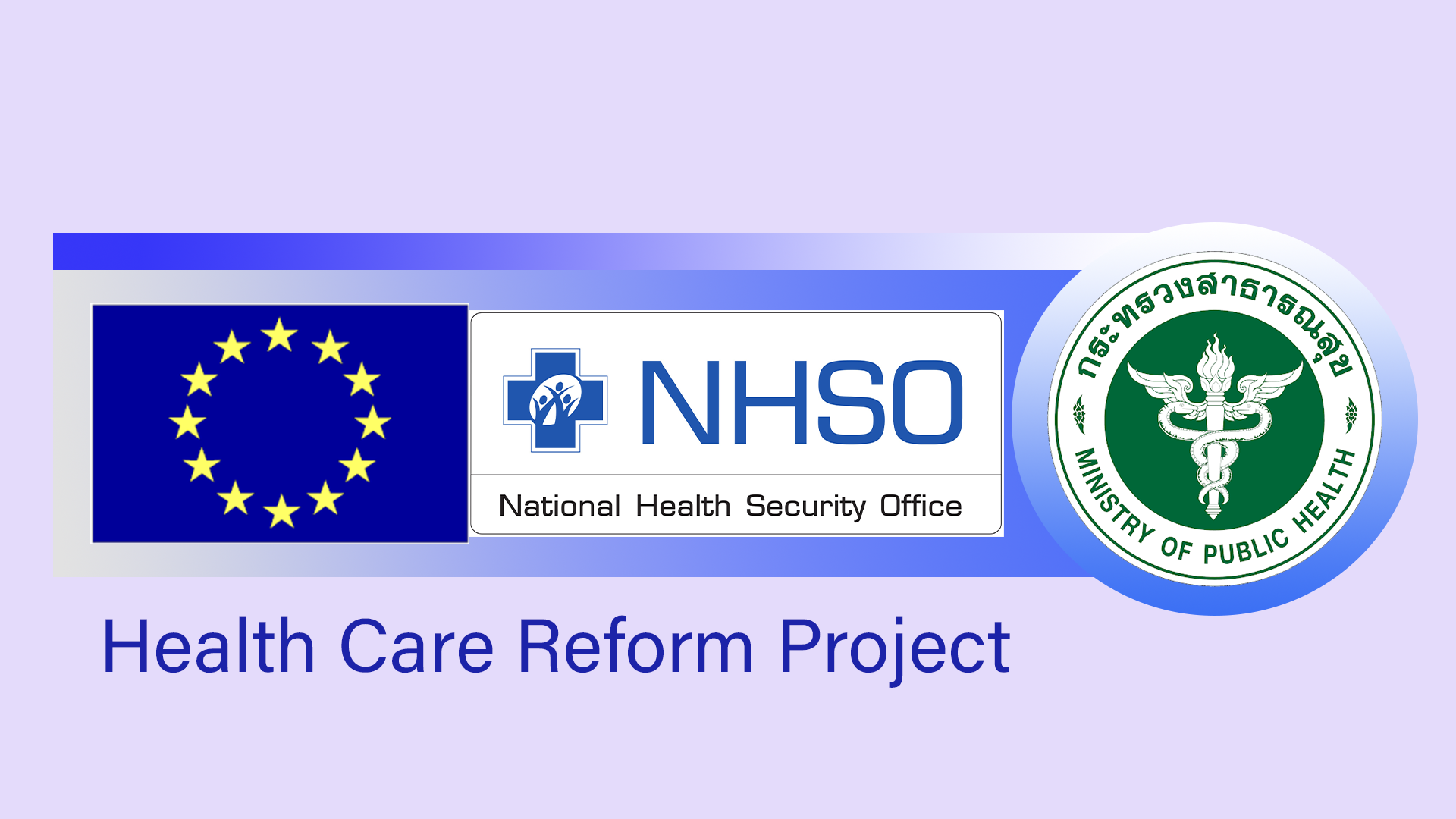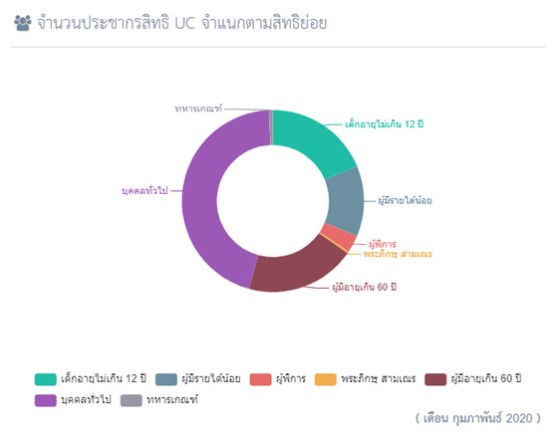Getting undocumented persons into Thai healthcare schemes
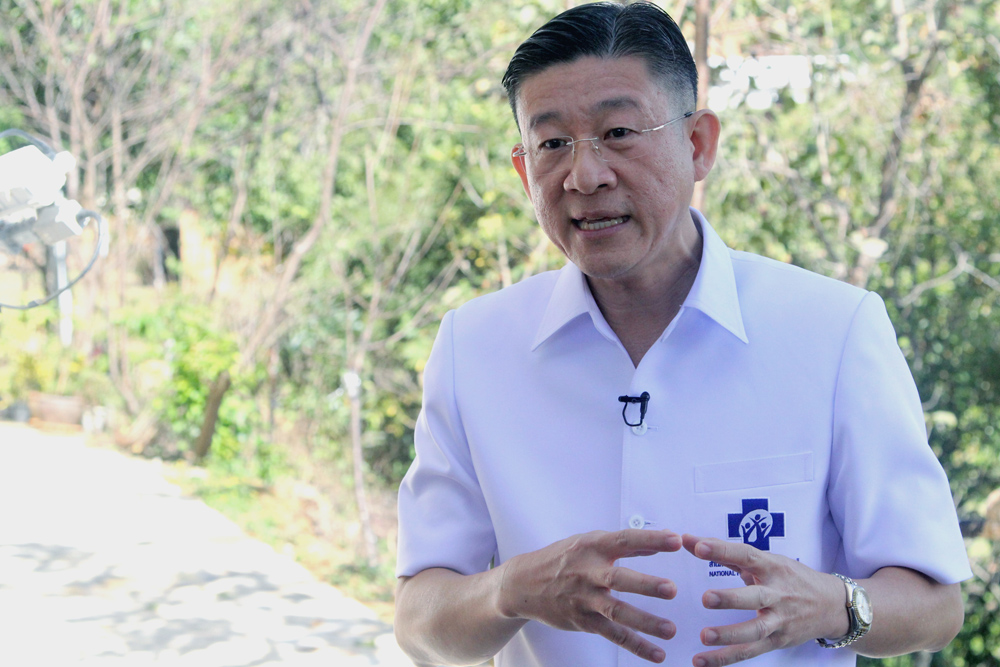
Getting undocumented persons into Thai healthcare schemes
Atthaporn Limpanyalert
Deputy Secretary-General of the National Health Security Office (NHSO)
Although more than 99% of the Thai population can access healthcare benefits under the Universal Healthcare Coverage. There is the remaining 1% that can't enjoy such welfare.
The 1% populations are mostly non-citizens persons – born to Thai parents but missing from the government's civil registration database. In many cases, the parents failed to register their children's birth with the government office.
An estimation of around 520,000 undocumented persons are living in Thailand. Since they are undocumented, they can't get healthcare benefits provided through three healthcare schemes run by the government — Universal Coverage Scheme (UCS), Social Security Scheme, and Civil Servants Medical Benefits Scheme.
The National Healthy Security Office (NHSO), the government agency operating the UCS, has set a priority to bring undocumented persons into the health system. But it's a mission that we can't achieve alone.
Undocumented persons are required to obtain Thai citizenship and present Thai identity cards before they could participate in one of the healthcare schemes. They must go through a complicated procedure of identity verification, which includes finding the evidence for their origin of birth and having DNA paternity testing.
Solving this challenge requires collaboration beyond the healthcare field. Therefore, we must partner with other government agencies and non-governmental organizations.
The latest progress was seen on 8 July when nine governmental and non-governmental organizations signed a Memorandum of Understanding (MoU) for their collaboration in improving the living quality of undocumented persons.
They promised to work together on searching undocumented persons across Thailand and guide these vulnerable populations into the national verification process.
The nine organizations are the NHSO, Ministry of Interiors, Ministry of Justice, Ministry of Public Health Ministry, Ministry of Social Development and Human Security, Bangkok Metropolitan Administrator, ThaiHealth, Pan International Thailand and Human Settlement Foundation.
The collaboration has yielded a fruitful outcome. Just a few weeks after the MoU signing, some undocumented persons reached out to the identity verification process and succeeded in obtaining Thai citizenship.
One of them is 19-year-old Tawan Klaharn, who was granted a Thai ID card at the end of Jul. He was born to a Thai mother in Prachuap Khiri Khan Province. But she left him to his father and grandmother, who were construction laborers moving across provinces. They failed to issued Tawan’s Document of Birth Registration “ a birth certificate” with the registrar in the local government office under the Civil Registration Act 1991 (B.E. 2534).
At the age of 13, he joined a school in Kanchanaburi province. The school director offered assistance to Tawan's national verification, which was eventually put on hold because the school operator couldn't afford the DNA testing fee.
Later the Human Settlement Foundation found Tawan and resumed him back into the national verification process, which was leaped forward after the MoU signing. The UCS now covers his medical fees. He also has an opportunity to pursue the government's free education scheme, if he wants to.
The MoU signing will have a significant impact on undocumented persons in a positive way. Before the event, they must spend many years in the national verification process because each step involves different government agencies. They must carry the burden, both physically and financially, of finding the proof for their origin of birth.
With an ongoing collaboration under the MoU, we hope that all of the undocumented persons in Thailand will be able to gain access to healthcare in the coming years.
Moreover, the NHSO has set a strategy to improve healthcare access for other vulnerable populations, including minorities, prisoners, and homeless people. During the COVID-19 outbreak, we collaborated with some organizations including civil society groups and universities to provide free coronavirus testing to homeless people in urban areas.
Our goal is to close the gap in the Thai healthcare system by drawing the remaining 1% into healthcare schemes. This is our effort to achieve the United Nations' Sustainable Development Goals on health ---- to achieve universal healthcare coverage by 2030 and "leave no one behind."
Undocumented persons are like all of us. They need security in life that can be guaranteed by good welfare. Although they lack opportunities at birth, they can change their paths if we join hands to address their issues and find the right solutions.
Thai government has tried to solve this problem. In 2010, the cabinet approved the Public Health Ministry's launching of "the healthcare for stateless people fund" that would cover medical fees for stateless people.
But it does not promise healthcare rights to them. Some health providers have denied free healthcare services for non-Thai citizens.
On 8 July, Public Health Minister Anutin Charnvirakul led nine governmental and non-governmental organizations to sign a Memorandum of Understanding (MoU) in an attempt to deliver free healthcare services to stateless people.
"Though universal healthcare coverage is available in Thailand, there are many Thai people without identity cards who can't benefit from the government's healthcare schemes," he said.
"We expect that our collaboration will progress an establishment of healthcare rights for everyone born in Thailand. We must close the health equity gap."
The organizations signed the MoU include Interiors Ministry, Justice Ministry, Public Health Ministry, Social Development and Human Security Ministry, Bangkok Metropolitan Administrator, ThaiHealth, Pan International Thailand, Human Settlement Foundation and the NHSO.
IN DEPTH
Getting undocumented persons into Thai healthcare schemes

Getting undocumented persons into Thai healthcare schemes
Atthaporn Limpanyalert
Deputy Secretary-General of the National Health Security Office (NHSO)
Although more than 99% of the Thai population can access healthcare benefits under the Universal Healthcare Coverage. There is the remaining 1% that can't enjoy such welfare.
The 1% populations are mostly non-citizens persons – born to Thai parents but missing from the government's civil registration database. In many cases, the parents failed to register their children's birth with the government office.
An estimation of around 520,000 undocumented persons are living in Thailand. Since they are undocumented, they can't get healthcare benefits provided through three healthcare schemes run by the government — Universal Coverage Scheme (UCS), Social Security Scheme, and Civil Servants Medical Benefits Scheme.
The National Healthy Security Office (NHSO), the government agency operating the UCS, has set a priority to bring undocumented persons into the health system. But it's a mission that we can't achieve alone.
Undocumented persons are required to obtain Thai citizenship and present Thai identity cards before they could participate in one of the healthcare schemes. They must go through a complicated procedure of identity verification, which includes finding the evidence for their origin of birth and having DNA paternity testing.
Solving this challenge requires collaboration beyond the healthcare field. Therefore, we must partner with other government agencies and non-governmental organizations.
The latest progress was seen on 8 July when nine governmental and non-governmental organizations signed a Memorandum of Understanding (MoU) for their collaboration in improving the living quality of undocumented persons.
They promised to work together on searching undocumented persons across Thailand and guide these vulnerable populations into the national verification process.
The nine organizations are the NHSO, Ministry of Interiors, Ministry of Justice, Ministry of Public Health Ministry, Ministry of Social Development and Human Security, Bangkok Metropolitan Administrator, ThaiHealth, Pan International Thailand and Human Settlement Foundation.
The collaboration has yielded a fruitful outcome. Just a few weeks after the MoU signing, some undocumented persons reached out to the identity verification process and succeeded in obtaining Thai citizenship.
One of them is 19-year-old Tawan Klaharn, who was granted a Thai ID card at the end of Jul. He was born to a Thai mother in Prachuap Khiri Khan Province. But she left him to his father and grandmother, who were construction laborers moving across provinces. They failed to issued Tawan’s Document of Birth Registration “ a birth certificate” with the registrar in the local government office under the Civil Registration Act 1991 (B.E. 2534).
At the age of 13, he joined a school in Kanchanaburi province. The school director offered assistance to Tawan's national verification, which was eventually put on hold because the school operator couldn't afford the DNA testing fee.
Later the Human Settlement Foundation found Tawan and resumed him back into the national verification process, which was leaped forward after the MoU signing. The UCS now covers his medical fees. He also has an opportunity to pursue the government's free education scheme, if he wants to.
The MoU signing will have a significant impact on undocumented persons in a positive way. Before the event, they must spend many years in the national verification process because each step involves different government agencies. They must carry the burden, both physically and financially, of finding the proof for their origin of birth.
With an ongoing collaboration under the MoU, we hope that all of the undocumented persons in Thailand will be able to gain access to healthcare in the coming years.
Moreover, the NHSO has set a strategy to improve healthcare access for other vulnerable populations, including minorities, prisoners, and homeless people. During the COVID-19 outbreak, we collaborated with some organizations including civil society groups and universities to provide free coronavirus testing to homeless people in urban areas.
Our goal is to close the gap in the Thai healthcare system by drawing the remaining 1% into healthcare schemes. This is our effort to achieve the United Nations' Sustainable Development Goals on health ---- to achieve universal healthcare coverage by 2030 and "leave no one behind."
Undocumented persons are like all of us. They need security in life that can be guaranteed by good welfare. Although they lack opportunities at birth, they can change their paths if we join hands to address their issues and find the right solutions.
Thai government has tried to solve this problem. In 2010, the cabinet approved the Public Health Ministry's launching of "the healthcare for stateless people fund" that would cover medical fees for stateless people.
But it does not promise healthcare rights to them. Some health providers have denied free healthcare services for non-Thai citizens.
On 8 July, Public Health Minister Anutin Charnvirakul led nine governmental and non-governmental organizations to sign a Memorandum of Understanding (MoU) in an attempt to deliver free healthcare services to stateless people.
"Though universal healthcare coverage is available in Thailand, there are many Thai people without identity cards who can't benefit from the government's healthcare schemes," he said.
"We expect that our collaboration will progress an establishment of healthcare rights for everyone born in Thailand. We must close the health equity gap."
The organizations signed the MoU include Interiors Ministry, Justice Ministry, Public Health Ministry, Social Development and Human Security Ministry, Bangkok Metropolitan Administrator, ThaiHealth, Pan International Thailand, Human Settlement Foundation and the NHSO.
Events
Getting undocumented persons into Thai healthcare schemes

Getting undocumented persons into Thai healthcare schemes
Atthaporn Limpanyalert
Deputy Secretary-General of the National Health Security Office (NHSO)
Although more than 99% of the Thai population can access healthcare benefits under the Universal Healthcare Coverage. There is the remaining 1% that can't enjoy such welfare.
The 1% populations are mostly non-citizens persons – born to Thai parents but missing from the government's civil registration database. In many cases, the parents failed to register their children's birth with the government office.
An estimation of around 520,000 undocumented persons are living in Thailand. Since they are undocumented, they can't get healthcare benefits provided through three healthcare schemes run by the government — Universal Coverage Scheme (UCS), Social Security Scheme, and Civil Servants Medical Benefits Scheme.
The National Healthy Security Office (NHSO), the government agency operating the UCS, has set a priority to bring undocumented persons into the health system. But it's a mission that we can't achieve alone.
Undocumented persons are required to obtain Thai citizenship and present Thai identity cards before they could participate in one of the healthcare schemes. They must go through a complicated procedure of identity verification, which includes finding the evidence for their origin of birth and having DNA paternity testing.
Solving this challenge requires collaboration beyond the healthcare field. Therefore, we must partner with other government agencies and non-governmental organizations.
The latest progress was seen on 8 July when nine governmental and non-governmental organizations signed a Memorandum of Understanding (MoU) for their collaboration in improving the living quality of undocumented persons.
They promised to work together on searching undocumented persons across Thailand and guide these vulnerable populations into the national verification process.
The nine organizations are the NHSO, Ministry of Interiors, Ministry of Justice, Ministry of Public Health Ministry, Ministry of Social Development and Human Security, Bangkok Metropolitan Administrator, ThaiHealth, Pan International Thailand and Human Settlement Foundation.
The collaboration has yielded a fruitful outcome. Just a few weeks after the MoU signing, some undocumented persons reached out to the identity verification process and succeeded in obtaining Thai citizenship.
One of them is 19-year-old Tawan Klaharn, who was granted a Thai ID card at the end of Jul. He was born to a Thai mother in Prachuap Khiri Khan Province. But she left him to his father and grandmother, who were construction laborers moving across provinces. They failed to issued Tawan’s Document of Birth Registration “ a birth certificate” with the registrar in the local government office under the Civil Registration Act 1991 (B.E. 2534).
At the age of 13, he joined a school in Kanchanaburi province. The school director offered assistance to Tawan's national verification, which was eventually put on hold because the school operator couldn't afford the DNA testing fee.
Later the Human Settlement Foundation found Tawan and resumed him back into the national verification process, which was leaped forward after the MoU signing. The UCS now covers his medical fees. He also has an opportunity to pursue the government's free education scheme, if he wants to.
The MoU signing will have a significant impact on undocumented persons in a positive way. Before the event, they must spend many years in the national verification process because each step involves different government agencies. They must carry the burden, both physically and financially, of finding the proof for their origin of birth.
With an ongoing collaboration under the MoU, we hope that all of the undocumented persons in Thailand will be able to gain access to healthcare in the coming years.
Moreover, the NHSO has set a strategy to improve healthcare access for other vulnerable populations, including minorities, prisoners, and homeless people. During the COVID-19 outbreak, we collaborated with some organizations including civil society groups and universities to provide free coronavirus testing to homeless people in urban areas.
Our goal is to close the gap in the Thai healthcare system by drawing the remaining 1% into healthcare schemes. This is our effort to achieve the United Nations' Sustainable Development Goals on health ---- to achieve universal healthcare coverage by 2030 and "leave no one behind."
Undocumented persons are like all of us. They need security in life that can be guaranteed by good welfare. Although they lack opportunities at birth, they can change their paths if we join hands to address their issues and find the right solutions.
Thai government has tried to solve this problem. In 2010, the cabinet approved the Public Health Ministry's launching of "the healthcare for stateless people fund" that would cover medical fees for stateless people.
But it does not promise healthcare rights to them. Some health providers have denied free healthcare services for non-Thai citizens.
On 8 July, Public Health Minister Anutin Charnvirakul led nine governmental and non-governmental organizations to sign a Memorandum of Understanding (MoU) in an attempt to deliver free healthcare services to stateless people.
"Though universal healthcare coverage is available in Thailand, there are many Thai people without identity cards who can't benefit from the government's healthcare schemes," he said.
"We expect that our collaboration will progress an establishment of healthcare rights for everyone born in Thailand. We must close the health equity gap."
The organizations signed the MoU include Interiors Ministry, Justice Ministry, Public Health Ministry, Social Development and Human Security Ministry, Bangkok Metropolitan Administrator, ThaiHealth, Pan International Thailand, Human Settlement Foundation and the NHSO.
RESOURCE CENTER
SECRETARY-GENERAL
Getting undocumented persons into Thai healthcare schemes

Getting undocumented persons into Thai healthcare schemes
Atthaporn Limpanyalert
Deputy Secretary-General of the National Health Security Office (NHSO)
Although more than 99% of the Thai population can access healthcare benefits under the Universal Healthcare Coverage. There is the remaining 1% that can't enjoy such welfare.
The 1% populations are mostly non-citizens persons – born to Thai parents but missing from the government's civil registration database. In many cases, the parents failed to register their children's birth with the government office.
An estimation of around 520,000 undocumented persons are living in Thailand. Since they are undocumented, they can't get healthcare benefits provided through three healthcare schemes run by the government — Universal Coverage Scheme (UCS), Social Security Scheme, and Civil Servants Medical Benefits Scheme.
The National Healthy Security Office (NHSO), the government agency operating the UCS, has set a priority to bring undocumented persons into the health system. But it's a mission that we can't achieve alone.
Undocumented persons are required to obtain Thai citizenship and present Thai identity cards before they could participate in one of the healthcare schemes. They must go through a complicated procedure of identity verification, which includes finding the evidence for their origin of birth and having DNA paternity testing.
Solving this challenge requires collaboration beyond the healthcare field. Therefore, we must partner with other government agencies and non-governmental organizations.
The latest progress was seen on 8 July when nine governmental and non-governmental organizations signed a Memorandum of Understanding (MoU) for their collaboration in improving the living quality of undocumented persons.
They promised to work together on searching undocumented persons across Thailand and guide these vulnerable populations into the national verification process.
The nine organizations are the NHSO, Ministry of Interiors, Ministry of Justice, Ministry of Public Health Ministry, Ministry of Social Development and Human Security, Bangkok Metropolitan Administrator, ThaiHealth, Pan International Thailand and Human Settlement Foundation.
The collaboration has yielded a fruitful outcome. Just a few weeks after the MoU signing, some undocumented persons reached out to the identity verification process and succeeded in obtaining Thai citizenship.
One of them is 19-year-old Tawan Klaharn, who was granted a Thai ID card at the end of Jul. He was born to a Thai mother in Prachuap Khiri Khan Province. But she left him to his father and grandmother, who were construction laborers moving across provinces. They failed to issued Tawan’s Document of Birth Registration “ a birth certificate” with the registrar in the local government office under the Civil Registration Act 1991 (B.E. 2534).
At the age of 13, he joined a school in Kanchanaburi province. The school director offered assistance to Tawan's national verification, which was eventually put on hold because the school operator couldn't afford the DNA testing fee.
Later the Human Settlement Foundation found Tawan and resumed him back into the national verification process, which was leaped forward after the MoU signing. The UCS now covers his medical fees. He also has an opportunity to pursue the government's free education scheme, if he wants to.
The MoU signing will have a significant impact on undocumented persons in a positive way. Before the event, they must spend many years in the national verification process because each step involves different government agencies. They must carry the burden, both physically and financially, of finding the proof for their origin of birth.
With an ongoing collaboration under the MoU, we hope that all of the undocumented persons in Thailand will be able to gain access to healthcare in the coming years.
Moreover, the NHSO has set a strategy to improve healthcare access for other vulnerable populations, including minorities, prisoners, and homeless people. During the COVID-19 outbreak, we collaborated with some organizations including civil society groups and universities to provide free coronavirus testing to homeless people in urban areas.
Our goal is to close the gap in the Thai healthcare system by drawing the remaining 1% into healthcare schemes. This is our effort to achieve the United Nations' Sustainable Development Goals on health ---- to achieve universal healthcare coverage by 2030 and "leave no one behind."
Undocumented persons are like all of us. They need security in life that can be guaranteed by good welfare. Although they lack opportunities at birth, they can change their paths if we join hands to address their issues and find the right solutions.
Thai government has tried to solve this problem. In 2010, the cabinet approved the Public Health Ministry's launching of "the healthcare for stateless people fund" that would cover medical fees for stateless people.
But it does not promise healthcare rights to them. Some health providers have denied free healthcare services for non-Thai citizens.
On 8 July, Public Health Minister Anutin Charnvirakul led nine governmental and non-governmental organizations to sign a Memorandum of Understanding (MoU) in an attempt to deliver free healthcare services to stateless people.
"Though universal healthcare coverage is available in Thailand, there are many Thai people without identity cards who can't benefit from the government's healthcare schemes," he said.
"We expect that our collaboration will progress an establishment of healthcare rights for everyone born in Thailand. We must close the health equity gap."
The organizations signed the MoU include Interiors Ministry, Justice Ministry, Public Health Ministry, Social Development and Human Security Ministry, Bangkok Metropolitan Administrator, ThaiHealth, Pan International Thailand, Human Settlement Foundation and the NHSO.
VIDEOS
Thailand's UHC Journey
UHC Public relations
